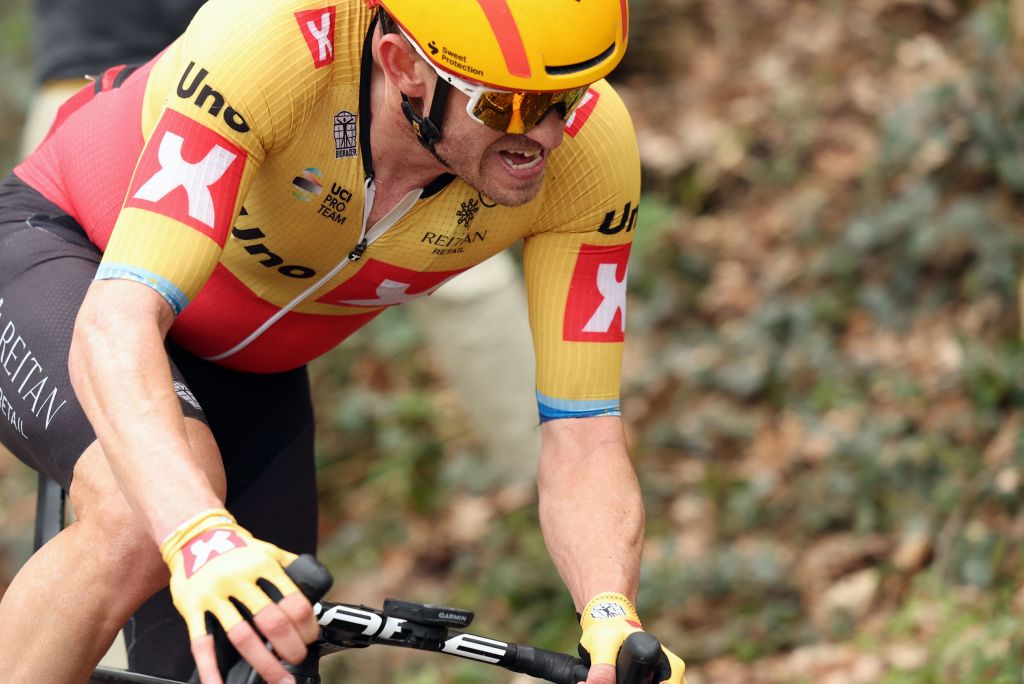Julian Alaphilippe’s two hours extra training straight after of Dwars door Vlaanderen caused a stir, but Alexander Kristoff raised the bar the following morning, setting out on a monster seven-hour ride with race exertion still fresh in his legs.
Most riders would have been happily recovering from a particularly aggressive edition of the mid-week semi-Classic, and most Tour of Flanders favourites wouldn’t dare go over four hours in the three days leading up to the Holy Sunday.
Alexander Kristoff, however, is made of different stuff. At around 10am on Thursday morning, he set off from Uno-X’s Classics base near Oudenaarde, and returned more than seven hours later. In between were 202.4 kilometres, 1553 metres of elevation gain over 20 short climbs in the Flemish Ardennes, and over 5000 burned kilojoules, all ticked off at a side under 30km/h.
“Waking up after a hard race, it’s never easy to get out and get the hours in, but this kind of thing works for me,” Kristoff told Cyclingnews.
Kristoff won the Tour of Flanders in 2015 and did so on the back of victory at the Three Days of De Panne, back when it was a stage race that was true to its name. Now, De Panne is a one-day race a week earlier, having been shunted from the pre-Flanders slot by Flanders Classics’ own Dwars door Vlaanderen.
Kristoff rode Dwars on Wednesday and nearly won it, going almost all the way from the breakaway, but it still didn’t give him enough in the legs.
“I liked the way it was set up before with De Panne, but now we only have one race day in this week. If I do three days easy, I don’t usually do too well on it, so I kind of tried to mimic the same load I had before with De Panne. That’s why I did Dwars and then a long ride.
“The weather wasn’t great, which didn’t help. The feelings when I was going easy were OK, but when I tried to push, there was not a lot there.”
Kristoff should know a thing or two about finding form for Flanders: his record there stands out as the most consistent and far-dating in the current peloton. That 11-year run of results is probably best expressed in numbers: 12, 4, 5, 1, 4, 5, 16, 3, 3, 18, 10.
“I’m not sure what it is about Flanders for me. I usually find a new race groove and manage a decent result – also in the last few years,” Kristoff said.
“It’s a long race and that suits me. When it’s long it gets a bit less explosive on the climbs. Everyone is more tired and the pace is a bit slower on the climbs than in the other shorter races, so that’s a factor…
Click Here to Read the Full Original Article at CyclingNews RSS Feed…

